We have grown accustomed to using a wire taped to a glass fiber mast when operating as portable. This is a very flexible approach that supports different antenna sizes, and different antenna geometries. It is also relatively lightweight and cheap if we use a generic 6m fishing pole. However, taping the antenna element to the mast is a relatively cold and time-consuming experience.
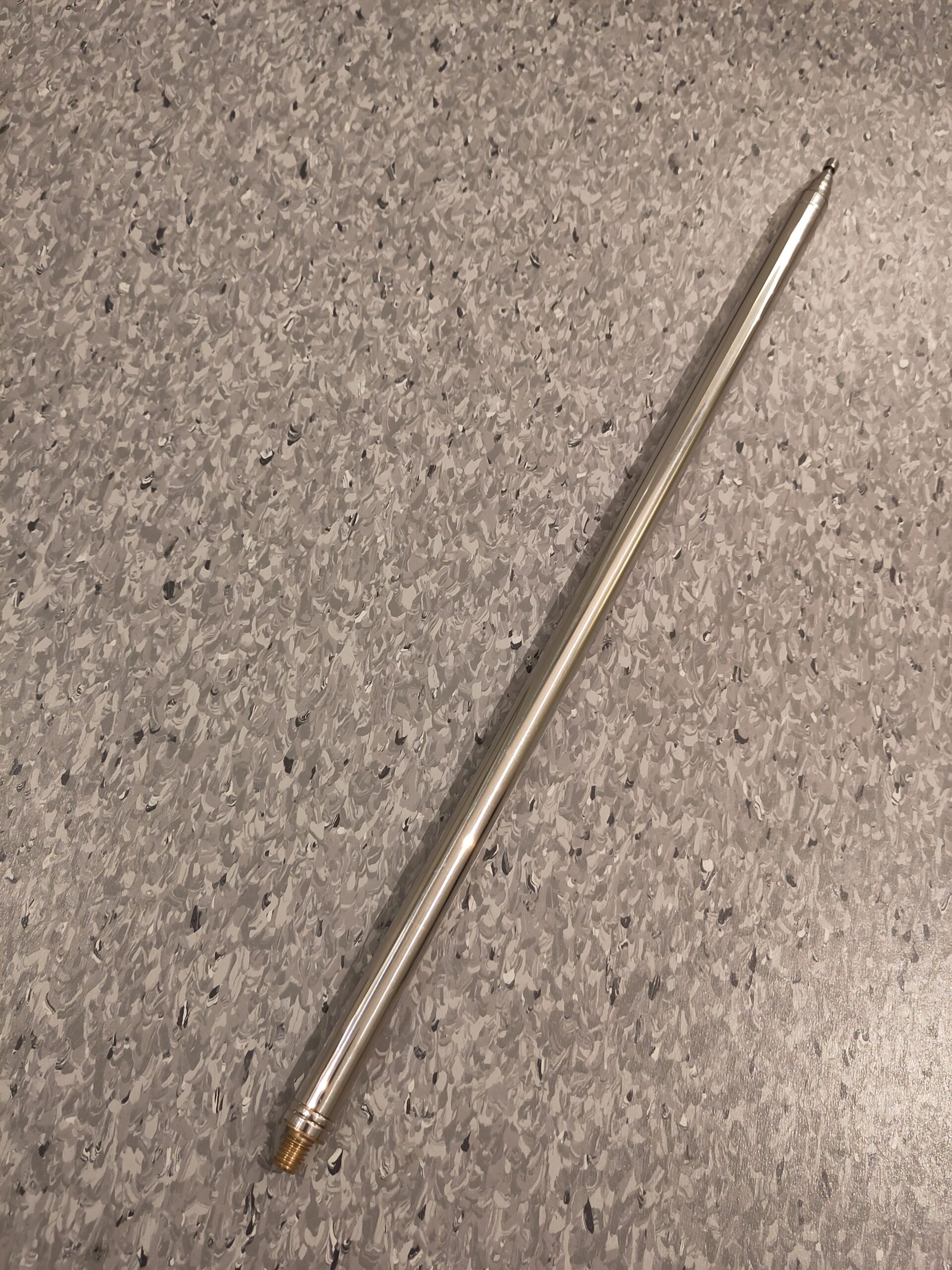
In my search for an antenna that is faster to set up, last autumn I stumbled upon HF metal whips. Whips with lengths up to 5,7 m can be sourced from China relatively cheaply. This could hopefully save some weight and some setup time. There would also be the benefit of being able to tune the antenna without taking it down.
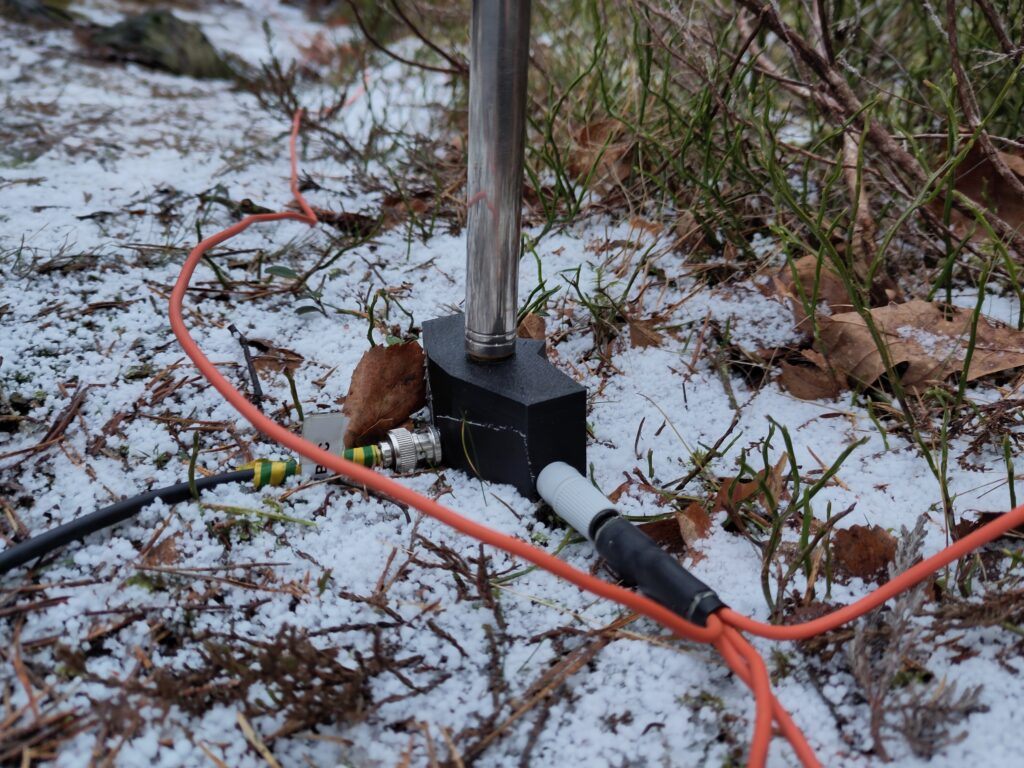
The idea was to use the whip as the element as in a quarter-wave vertical, with additional radials. I made a 3D-printed centerpiece to tie it all together. The radials attach with banana plugs, which is the same interface we use in ARK’s tuners. The interface to the whip is slightly more complicated. The specifications for the antenna mentioned the base is an M10 bolt, which I needed to connect with electrically. My solution for that was to solder a cable to an M10 heat-set insert, and use that as the connection point in the base. Then I soldered both the radials and the insert to a BNC chassis mount inside the centerpiece.
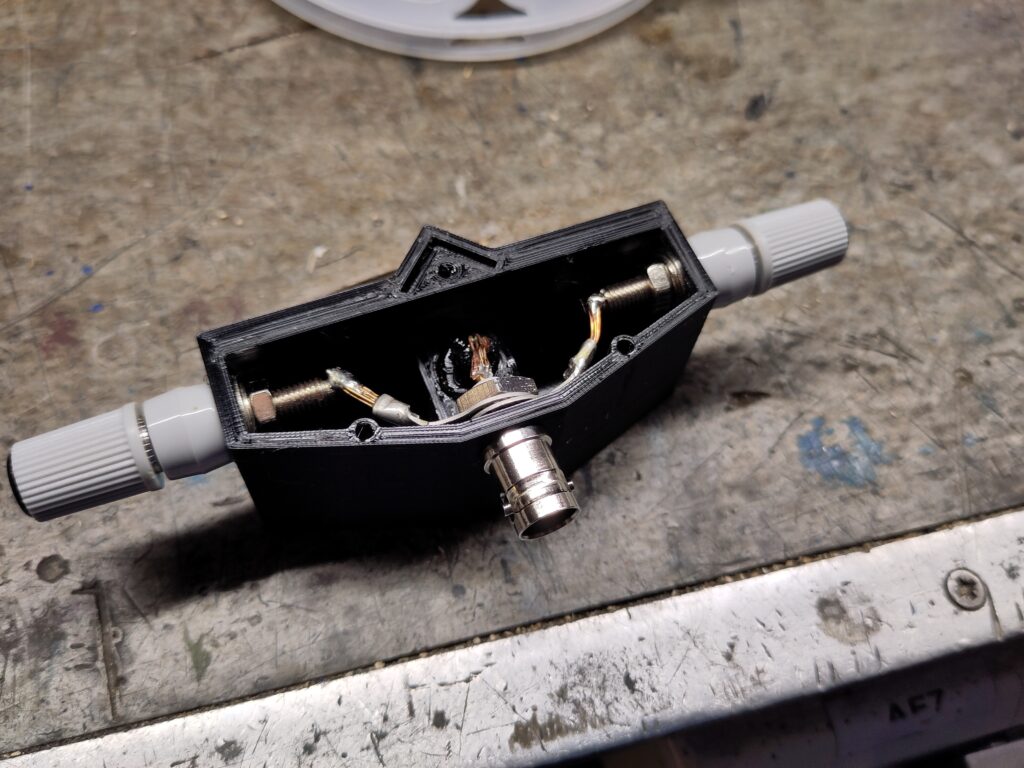
ARK usually keeps our masts standing upright by guying them. To simplify this, I made a 3D-printed combined guying ring and guy wire winder. However, setting up the guy wires takes time during setup, and complicates tuning the antenna length. To support it in soft ground without guy wires, I added a tent plug that mates with the underside of the centerpiece.

The centerpiece is not fully waterproof. There is after all a hole in the top for the antenna. The idea was that this would be acceptable if the water would leak out again in the bottom and that the margins inside were large enough to avoid short circuits.
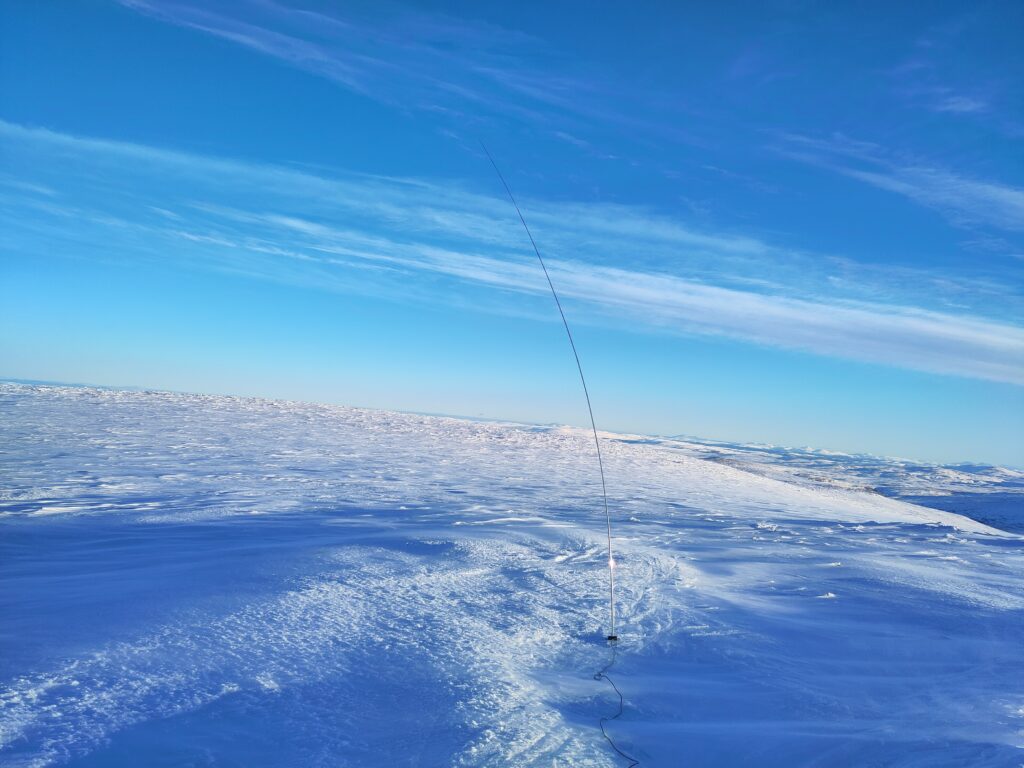
I have used it for a few SOTA activations and a single POTA activation, and I have generally found that it works as well as I would expect from a quarter-wave vertical. With the 10m challenge, I first tried it at the 10 m band, but I later used it at the 20m and 17m bands. I did find that I needed a radial set adapted to the band on the rocky ground commonly found on summits.
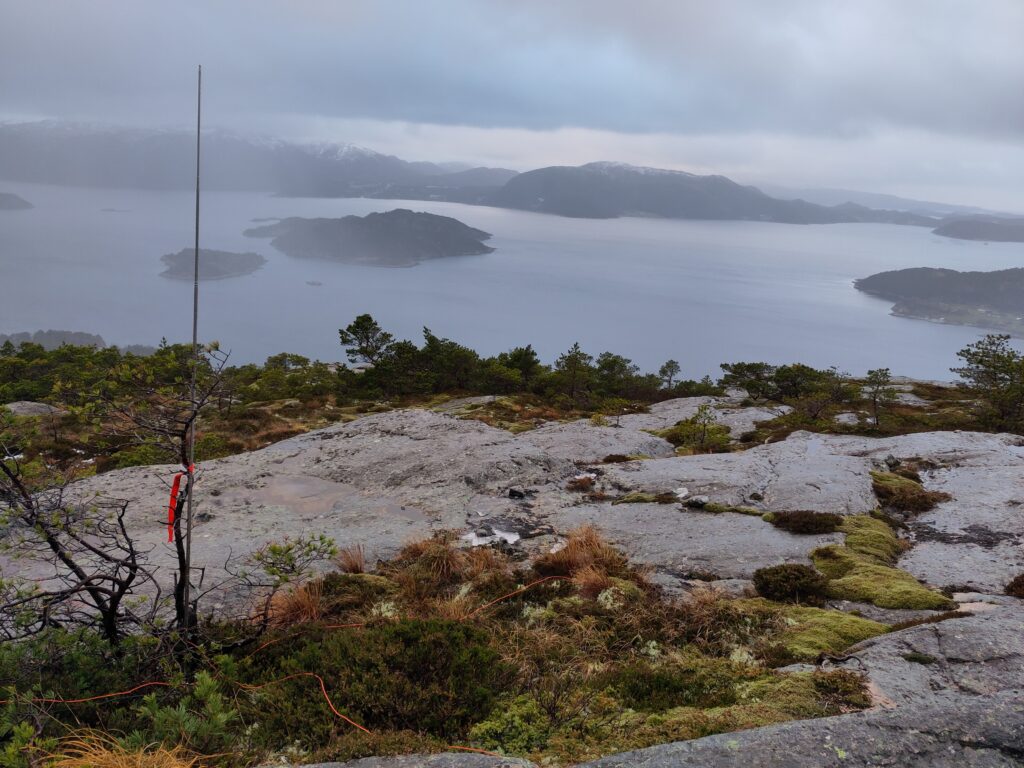
At most of the summits, I tied it to some suitable structure, like a signpost or a tree. At a few activations, I used the tent plug support, but there were none where I needed the guy wires. Both the tent plug mounting and the heat-set insert proved to be surprisingly durable. I was quite pessimistic about how much wind both the tent plug and the heat-set insert would take before breaking/tipping over, but it turned out to be quite a lot.
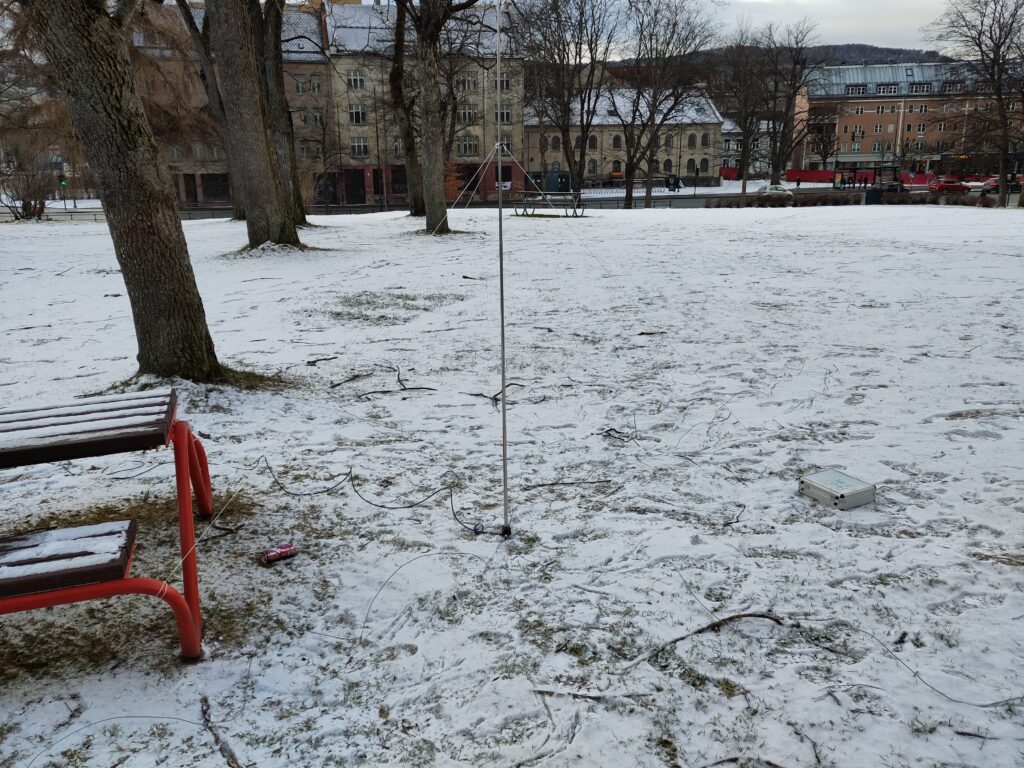
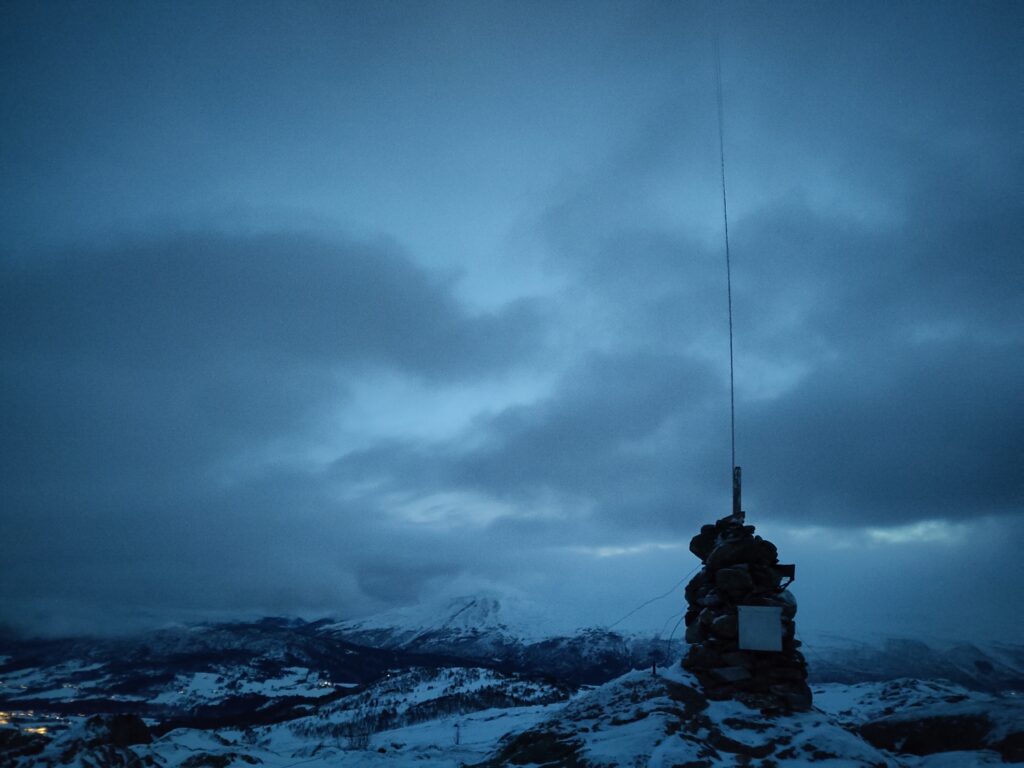

Photo: LB5DH
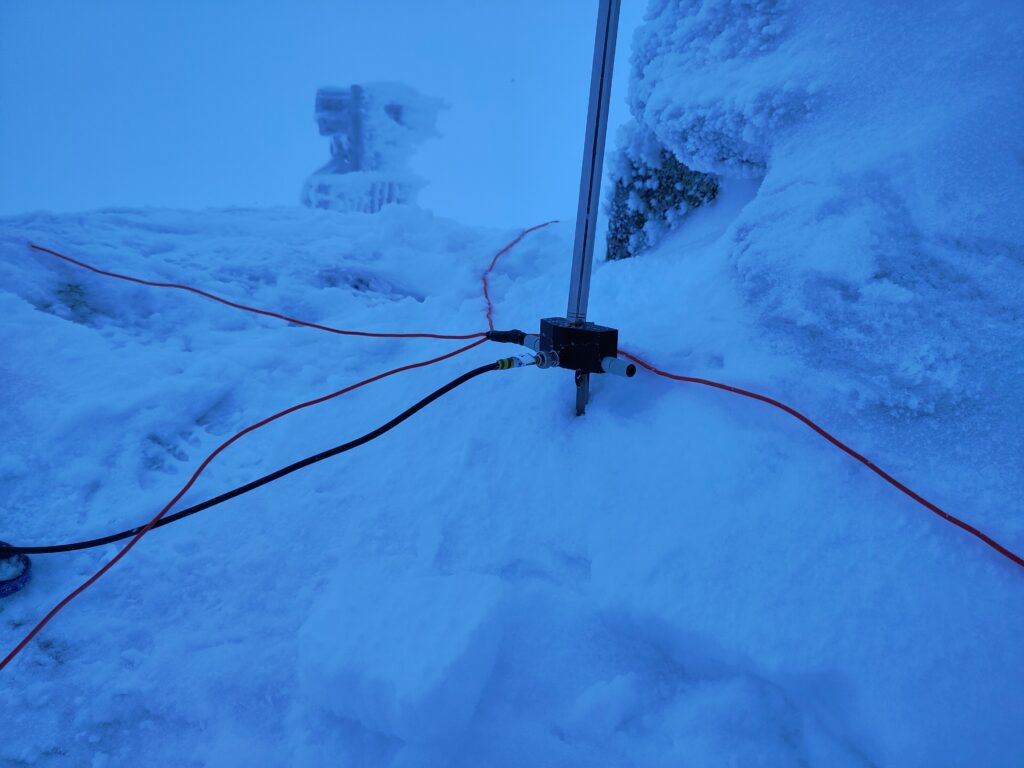
I expected this to be both flimsy and to break easily, but the antenna has still not broken after being used for a few months. The top section is slightly bent, but the telescopic retraction still functions. I see that some vendors market similar antennas as “QRP-antennas”, but I have not had any issues with using it with 100 W.
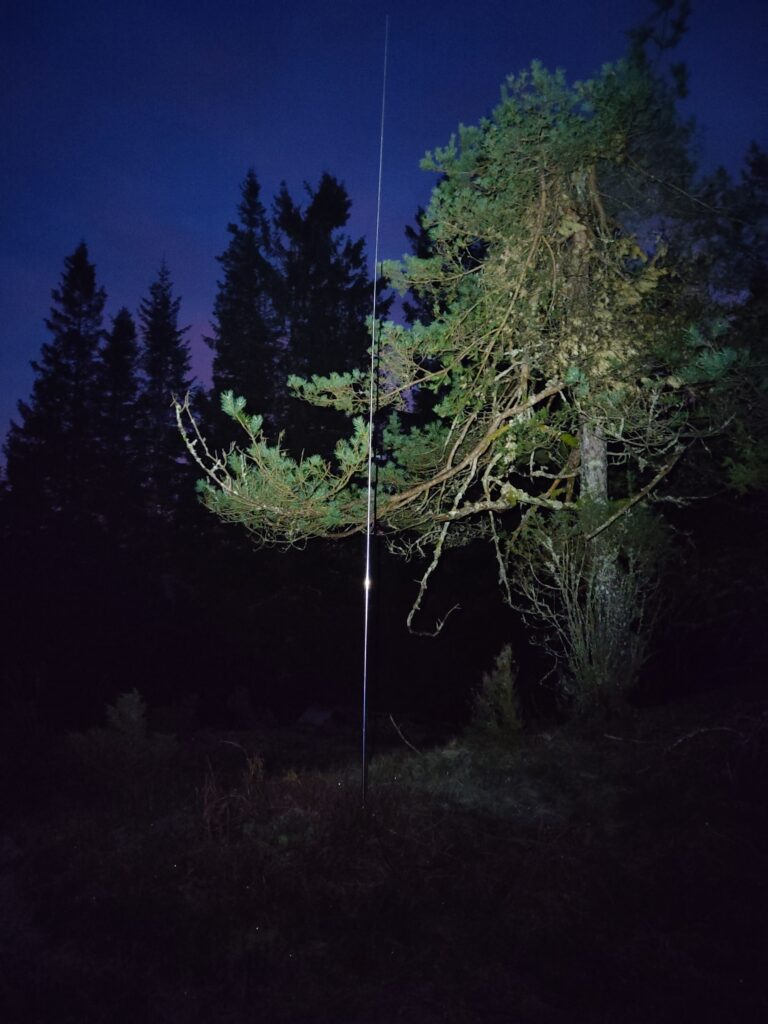
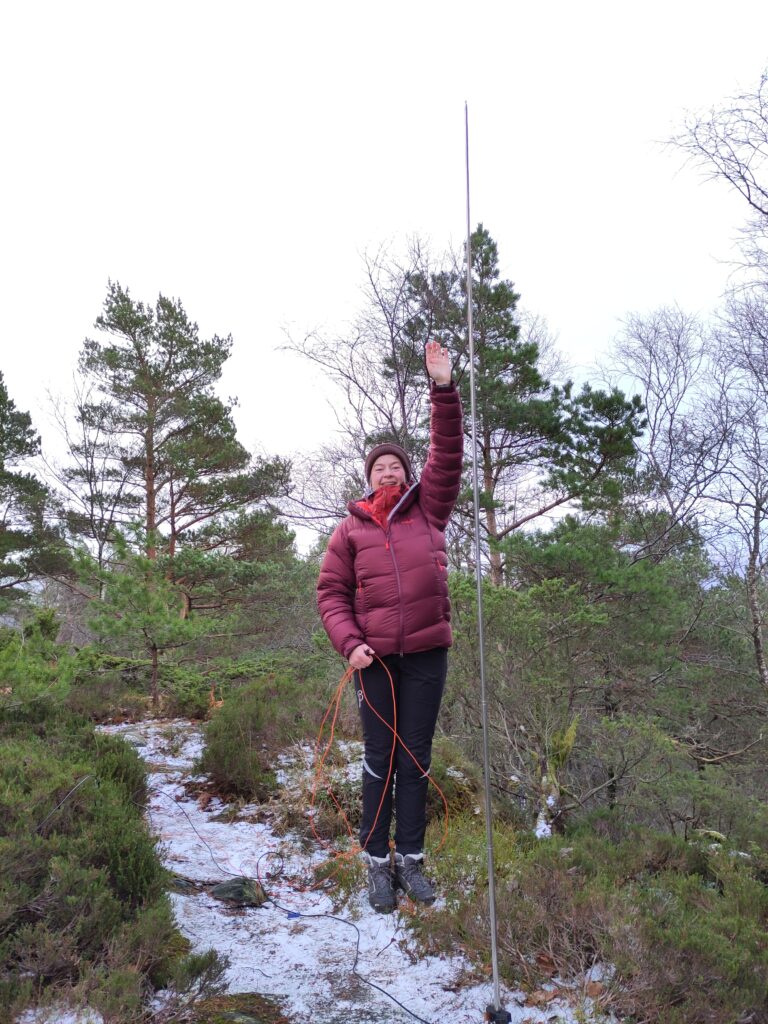
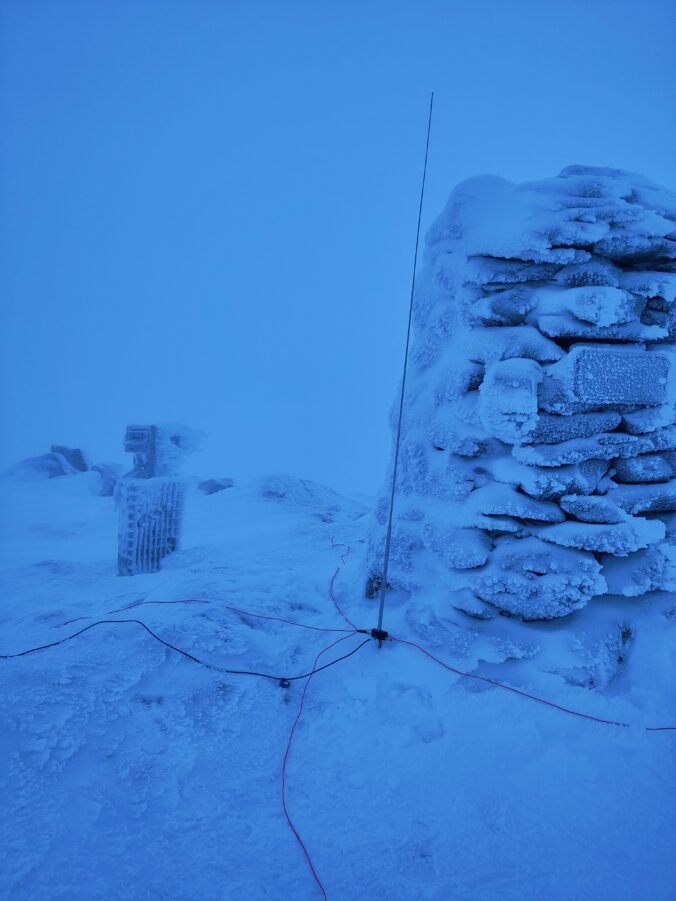

Leave a Reply